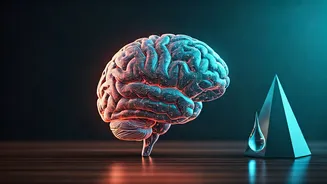Unraveling 10 Myths About Carbs: The Truth for a Healthier You! Dive in to dispel misconceptions and embrace a balanced diet
We Indians love our carbs! From roti and rice to idli and dosa, carbs are a staple
in most Indian diets. But lately, carbs have been getting a bad rap. You might have heard things like "carbs make you fat" or "you should avoid carbs completely." But are these really true?
Let's debunk some common myths about carbs and see how they actually fit into a healthy eating plan. It's time to separate fact from fiction and understand how carbs work in our bodies.
They provide us with the energy boost we need for daily activities, and ditching them completely is usually not a sustainable or healthy approach.
Choose complex carbs for sustained energy and nutrients over simple carbs
This couldn't be further from the truth! There are two main types of carbs: simple and complex. Simple carbs, found in things like sugary drinks and processed snacks, can cause quick spikes in blood sugar and aren't always the best choice. Complex carbs, on the other hand, are your friends.
They're found in whole grains like wheat, oats, brown rice, and in vegetables like potatoes, sweet potatoes, and legumes like beans and lentils. These carbs provide sustained energy, fiber, and important nutrients. Think of complex carbs as slow-burning fuel that keeps you going throughout the day.
Opting for whole grains over refined grains is always a good idea as they contribute more to your overall well-being. It is important to remember that we need to make the right choices.
Eating moderate complex carbs won't cause weight gain; focus on moderation and quality
Carbs themselves don't automatically lead to weight gain. Weight gain happens when you consume more calories than you burn, regardless of where those calories come from – carbs, fats, or proteins. The real issue is the quantity and type of carbs you're eating.
Overeating large portions of refined carbs, like white bread and sugary sweets, can contribute to weight gain. However, enjoying moderate portions of complex carbs as part of a balanced diet will not automatically make you fat. The key is moderation and making smart choices about your carb sources.
Combined with exercise and a healthy lifestyle, a balanced intake of complex carbohydrates should not hinder any weight loss attempts. Focus on whole, unprocessed options.
Cutting carbs completely is harmful; choose wisely for health
Cutting out carbs completely is not only difficult to sustain, but it can also be harmful in the long run. Your body needs carbs for energy, especially your brain. Severely restricting carbs can lead to fatigue, headaches, and difficulty concentrating.
A better approach is to focus on choosing the right types of carbs and controlling your portion sizes. A more sensible strategy involves reducing your intake of refined carbs while increasing your intake of fiber-rich complex carbs.
Remember, a balanced diet that includes a variety of food groups is key for sustainable weight management and overall health. Consult with a dietician before making such drastic changes
Carbs not main cause of diabetes; insulin resistance primary factor
Carbs don't directly cause diabetes. Type 2 diabetes is primarily caused by insulin resistance, often linked to factors like genetics, obesity, and lack of physical activity and not just carbohydrates.
While eating excessive amounts of sugary and processed carbs can worsen blood sugar control, complex carbs actually release sugars slowly, preventing sugar spiking. If you have concerns about diabetes, talk to your doctor or a registered dietitian.
They can help you create a personalized meal plan that includes healthy carb choices and helps manage your blood sugar levels effectively.
Fruit is a nutrient-rich food with fiber to regulate sugar intake
Fruit is a fantastic source of vitamins, minerals, antioxidants, and fiber. Yes, it contains natural sugars (fructose), but these sugars are accompanied by a host of other beneficial nutrients. The fiber in fruit helps slow down the absorption of sugar, preventing rapid spikes in blood sugar levels.
So, enjoy a variety of fruits as part of your healthy diet. Limit your intake of added sugar and aim for whole fruits instead of fruit juices, which have had the fiber removed.
Consider bananas, apples, oranges, mangoes, and berries as a part of your daily nourishment since these give us energy and strength.
Calories consumed daily impact weight, not timing. Healthy carbs okay at night
It's the total number of calories you consume throughout the day, not the time of day you eat them, that affects your weight. Eating carbs at night doesn't automatically lead to weight gain.
If you're hungry in the evening, choose a healthy carb source like a small bowl of dal and roti or some vegetables and brown rice. Listen to your body's hunger cues and eat when you're hungry, regardless of the time. Calorie intake vs calorie expenditure is key.
Not all white bread is bad; choose whole grains or fiber-enriched options for a balanced diet
While whole wheat bread is generally a healthier choice, not all white bread is created equal. Look for white bread that's made with whole grains or enriched with fiber. These options can be a reasonable part of a balanced diet if you prefer the taste or texture of white bread.
However, comparing white bread that is completely processed should be definitely avoided. Reading the labels is important.
Brown bread may not be healthy; check for whole wheat flour
Just because bread is brown doesn't automatically mean it's healthy. Many commercially produced "brown" breads are simply white bread with added coloring. Always check the ingredient list to make sure the bread is made with whole wheat flour.

Look for bread that lists "whole wheat flour" as the first ingredient. This will ensure you're actually getting the benefits of whole grains.
Carbs are vital for muscle fuel during exercise, focus on complex carbs for muscle building
Carbs are an important fuel source for your muscles, especially during exercise. They provide the energy your muscles need to perform and recover. Eliminating carbs can actually hinder your muscle-building efforts.
If you're trying to build muscle, focus on consuming complex carbs before and after your workouts. Avoid refined carbs since these can cause unwanted spikes in blood sugar levels.
Potatoes are nutritious when prepared healthily
Potatoes have gotten a bad rap, but they're actually a nutritious vegetable. They're a good source of vitamins, minerals, and fiber (especially when you eat the skin). The key is how you prepare them. Avoid deep-frying potatoes or loading them with unhealthy toppings.

Instead, try baking, roasting, or boiling them. Even potatoes can be a part of a balanced diet.
Carbs are essential for energy and nutrients; choose wisely
The truth is that carbs are an essential part of a healthy diet. They provide energy, fiber, and important nutrients. The key is to choose the right types of carbs, control your portion sizes, and balance your carb intake with other healthy foods.
Don't fear carbs; embrace them as part of a balanced and delicious eating plan.
Carbs are essential; focus on right types, portion control, balanced diet for health
The bottom line is that carbs are not the enemy! Focusing on the right types of carbs, portion control, and a balanced diet is the key to a healthy relationship with this essential food group. Always consult with a nutritionist or dietician for personalized advice.
AI Generated Content. Glance/InMobi shall have no liability for the content



















